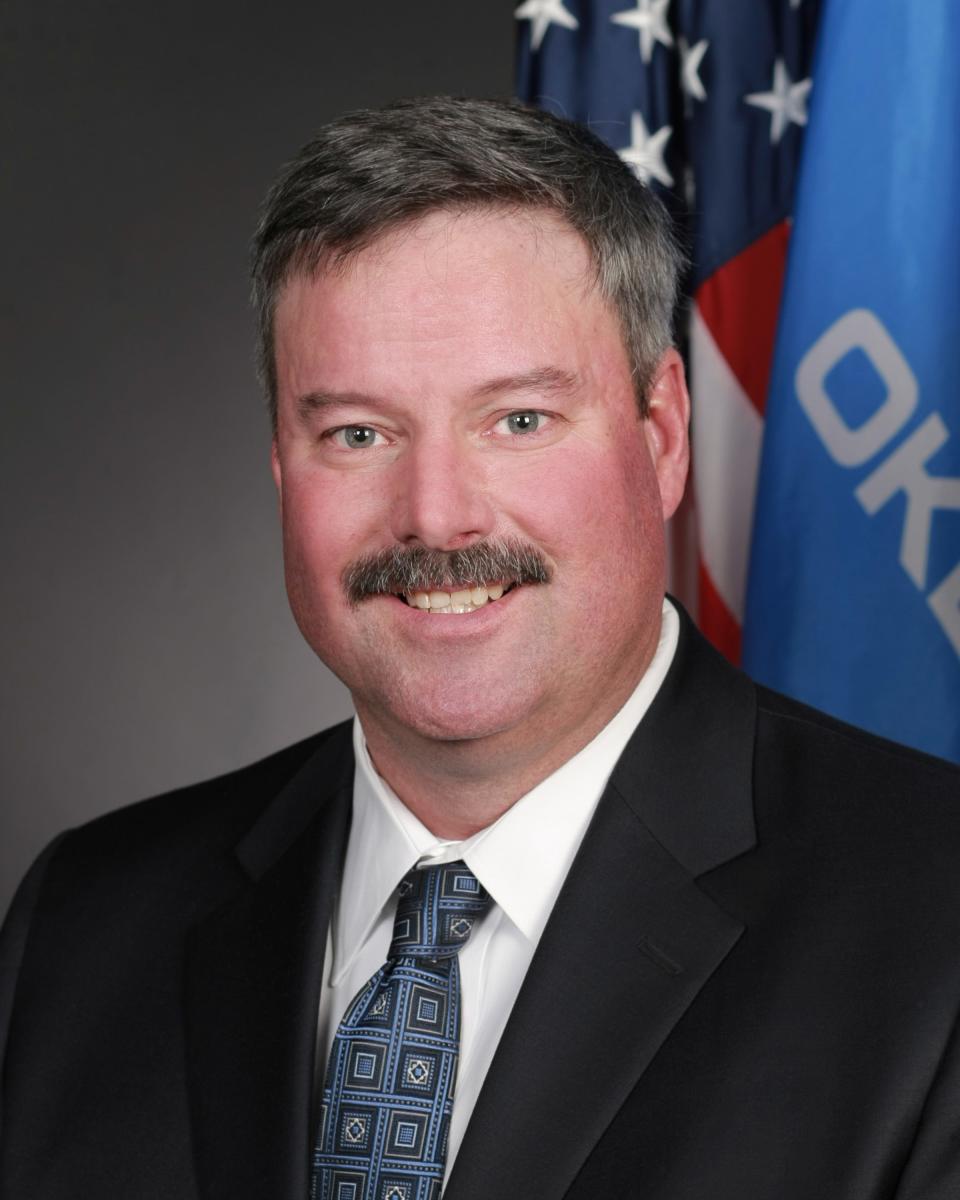Stitt vetoes bill requiring gubernatorial appointees to file financial disclosure forms
- Oops!Something went wrong.Please try again later.
- Oops!Something went wrong.Please try again later.
Gov. Kevin Stitt vetoed legislation Tuesday that would require his appointed Cabinet secretaries and state agency directors to file financial disclosure forms.
In his veto message, Stitt asked the Oklahoma Legislature to take a more holistic approach to requiring financial disclosures by also requesting the same information from legislative appointees to boards, commissions and agency leadership positions.
"I would urge the Legislature to revisit this topic and pass legislation that subjects all state officers — whether elected, appointed, or subject to a retention election — to the same set of financial disclosure requirements," Stitt wrote in his veto message.
State elected officials are required to fill out the forms that detail income derived from their employment and investments and any ownership interest they have in private businesses or publicly traded companies.
More: Democratic US Senate candidate Madison Horn gets to stay on ballot in Oklahoma
Sen. Casey Murdock, the author of Senate Bill 1695, does not plan to push for a veto override of the bill, which passed with overwhelming bipartisan support in both chambers. Murdock, R-Felt, said he didn't talk to Stitt's office before running the bill, a move he now regrets.
But he took the governor's veto message in stride and said he plans to run legislation next year that asks all political appointees to file financial disclosure forms. Murdock also praised the governor for offering up a compromise where the executive and legislative branches could meet.
"His message right here is 'yeah, I don't like your idea, but what about this one?' After reading this, I really wished I would have reached out to the governor's office, and we would have had something done this year," Murdock said.
More: Turnpike Authority approves $200 million line of credit to start ACCESS Oklahoma

Murdock said his idea for the bill came after the Oklahoma Corrections Department announced plans to close the William S. Key Correctional Center in Fort Supply.
State corrections officials and Stitt's secretary of public safety said the prison closure was prompted by Oklahoma's decreasing prison population. But Murdock said constituents in his district began questioning whether those officials could personally benefit from the decision.
There was a lot of talk at the time that "all politicians are dirty," said Murdock, who represents Fort Supply.
Although Murdock didn't buy into the rhetoric, he figured requiring more state officials to file financial disclosures would increase government transparency and allay his constituents' concerns.
More: OKC police officer shown kneeling on the back of a man who later died from lack of oxygen
Gov. Stitt signs bill to change health commissioner qualifications
In a separate action, Stitt signed legislation Tuesday to relax the health commissioner qualifications in state law — a move that could allow him to appoint interim Health Commissioner Keith Reed to serve in the position permanently.
Under the new law requested by the governor, Oklahoma's health commissioner would not be required to have any health care experience if the appointee possesses other qualifications and expertise.
Senate Bill 709 from Sen. Paul Rosino, R-Oklahoma City, also codifies in state law that the Oklahoma Health Department employ a chief medical officer — something the agency already does.
The law spells out the chief medical officer's job duties and stipulates the official who would be appointed by the health commissioner must be a medical doctor or a doctor of osteopathy.
Sen. Julia Kirt, D-Oklahoma City, expressed concerns this week that giving the health commissioner hiring and firing power over the chief medical officer could make the latter subject to political pressures.
"Medical expertise is now expendable," she said. "It can be moved along if it doesn't agree with the political appointee's preferences."
The new law exempts the health commissioner from certain job requirements if the individual possesses at least a master's degree in any field and has experience managing a state agency or large projects.
Previously, state law said the health commissioner must meet one of these requirements:
Possess a doctorate in medicine and a license to practice medicine in Oklahoma
Hold a degree in osteopathic medicine and a license to practice medicine in Oklahoma
Possess a doctorate degree in public health or public health administration
Hold a Master of Science degree and have at least five years of supervisory experience in the administration of health services.
Although Reed holds a master's degree and has worked his way up at the Health Department for nearly two decades, he previously wasn't qualified to serve as health commissioner.
Stitt's office has said the legal change gives the governor the flexibility to recruit the best candidates to work in state government.
"The bill does not eliminate the qualifications of the commissioner; it just broadens them so a skilled administrator who happens to not be a doctor may step into this role," Rosino said this week.
Former Health Commissioner Dr. Lance Frye resigned in October.
SB 709 took effect immediately.
This article originally appeared on Oklahoman: Stitt vetoes financial disclosure requirement for executive appointees

